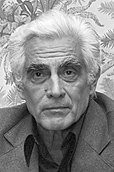| |||||||||||||||||||||||||||||||||||||||||||||||||||||
All 305 Portuguese municipalities and 4,260 Portuguese Parishes All 1,900 local government councils | |||||||||||||||||||||||||||||||||||||||||||||||||||||
|---|---|---|---|---|---|---|---|---|---|---|---|---|---|---|---|---|---|---|---|---|---|---|---|---|---|---|---|---|---|---|---|---|---|---|---|---|---|---|---|---|---|---|---|---|---|---|---|---|---|---|---|---|---|
| Turnout | 71.7% | ||||||||||||||||||||||||||||||||||||||||||||||||||||
| |||||||||||||||||||||||||||||||||||||||||||||||||||||
Local elections were held in Portugal on 16 December 1979. They were the 2nd local elections in Portugal since the democratic revolution of 1974 introduced the concept of democratic local power. The elections took place just two weeks after the 1979 legislative election.
The elections consisted of three separate elections in the 305 Portuguese municipalities, the election for the Municipal Chambers, whose winner is automatically elected mayor, similar to first-past-the-post (FPTP), another election for the Municipal Assembly and a last one for the lower-level Parish Assembly, whose winner is elected parish president, this last was held separately in the more than 4,000 parishes around the country.
The Socialist Party finished on the top of the results table, however that was because the coalition between the two major right-wing parties, the Democratic and Social Center and the Social Democratic Party, the Democratic Alliance, did not participated in all Municipalities and Parishes, being the parties which composed it, separated in many Municipalities
The left-wing United People Alliance dominated the election in the municipalities of the South of the country, gathering more than 60 percent of the votes.
Turnout in these elections increased compared with the 1976 election, as 71.7 percent of the electorate cast a ballot, the highest turnout recorded in a nationwide local election.


